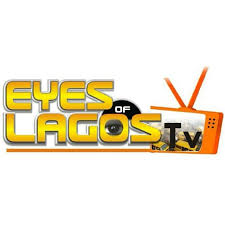Delta State University (DELSU), Abraka, has suspended a 200-level Biotechnology student, Ezi Ugoma, for two academic sessions over a controversial video showing a dying student.
The decision was contained in an official statement signed by the institution’s Vice Chancellor, Professor Samuel O. Asagba, and dated October 21, 2025. The statement noted that Ugoma’s action violated the university’s code of conduct, describing it as “an assault on human dignity and the institution’s ethical values.” Eyes Of Lagos reports,
University Statement and Disciplinary Action
According to the statement, Ezi Ugoma was found guilty of filming and posting a video of a fellow student in a critical medical condition on TikTok, an act that drew widespread criticism from both students and the public.
“After due consideration of the committee’s report, the Vice Chancellor, Prof. Samuel O. Asagba, has approved the recommendation that you be rusticated for four semesters for the offence of assault, effective from the 2025/2026 academic session.
You are to resume your studies in the 2027/2028 academic session,” the statement read.
The decision follows a disciplinary committee review which found her actions “inconsistent with the values of compassion, respect, and confidentiality expected of students within the university community.”
Public Reaction
The suspension has sparked mixed reactions across social media platforms. While some users believe the punishment was too severe, others argue it sends a strong message about digital responsibility and the ethical use of social media.
Many critics pointed out that sharing sensitive or distressing content without consent violates the rights of the affected individual and can cause psychological trauma to families and friends.
A student from the Faculty of Life Sciences, who spoke anonymously, said:
“It was heartbreaking. Instead of helping, she recorded the moment and shared it online. The school’s action should serve as a warning to others who misuse social media.”
Broader Concerns About Social Media Conduct in Nigerian Universities
Incidents involving students posting sensitive or inappropriate content online have been on the rise in Nigeria’s tertiary institutions. Universities have increasingly introduced strict digital policies to regulate students’ online conduct, especially when it concerns fellow students or university activities.
Experts have emphasized that the ethical line between content creation and privacy invasion must be respected, particularly in situations involving death, medical emergencies, or distress.
A media ethics lecturer at the University of Benin commented that:
“Social media doesn’t exist outside morality. What is wrong offline remains wrong online. Recording someone in distress for likes or attention is deeply unethical.”
DELSU’s History of Controversy
This is not the first time Delta State University has made headlines for disciplinary or tragic reasons. In January 2025, the university community was thrown into mourning following the assassination of Professor Emeka Chukwuma, a senior lecturer in the Faculty of Arts, at his residence in Asaba.
Security agencies later confirmed the incident and assured the public that investigations were ongoing to bring the perpetrators to justice.
The university management has repeatedly maintained its commitment to upholding discipline and moral values among its students, warning that inappropriate behavior — whether physical or online — will attract severe sanctions.
What This Means for Students
The case of Ezi Ugoma is expected to become a reference point for digital ethics enforcement in Nigerian campuses.
Analysts believe that DELSU’s decisive action will likely encourage other institutions to introduce clearer policies on privacy, consent, and digital media conduct among students.
For many observers, this rustication serves as a reminder that while social media offers expression and visibility, it also demands responsibility, empathy, and restraint.
Conclusion
Delta State University’s move underscores a growing awareness within Nigeria’s higher education system about the need for digital discipline. As online behavior increasingly mirrors real-life consequences, universities are drawing firmer boundaries to protect the dignity and well-being of their students.
With the rise of social media influence among young people, the DELSU case may well set the tone for a national conversation on ethics, accountability, and compassion in the digital age.









